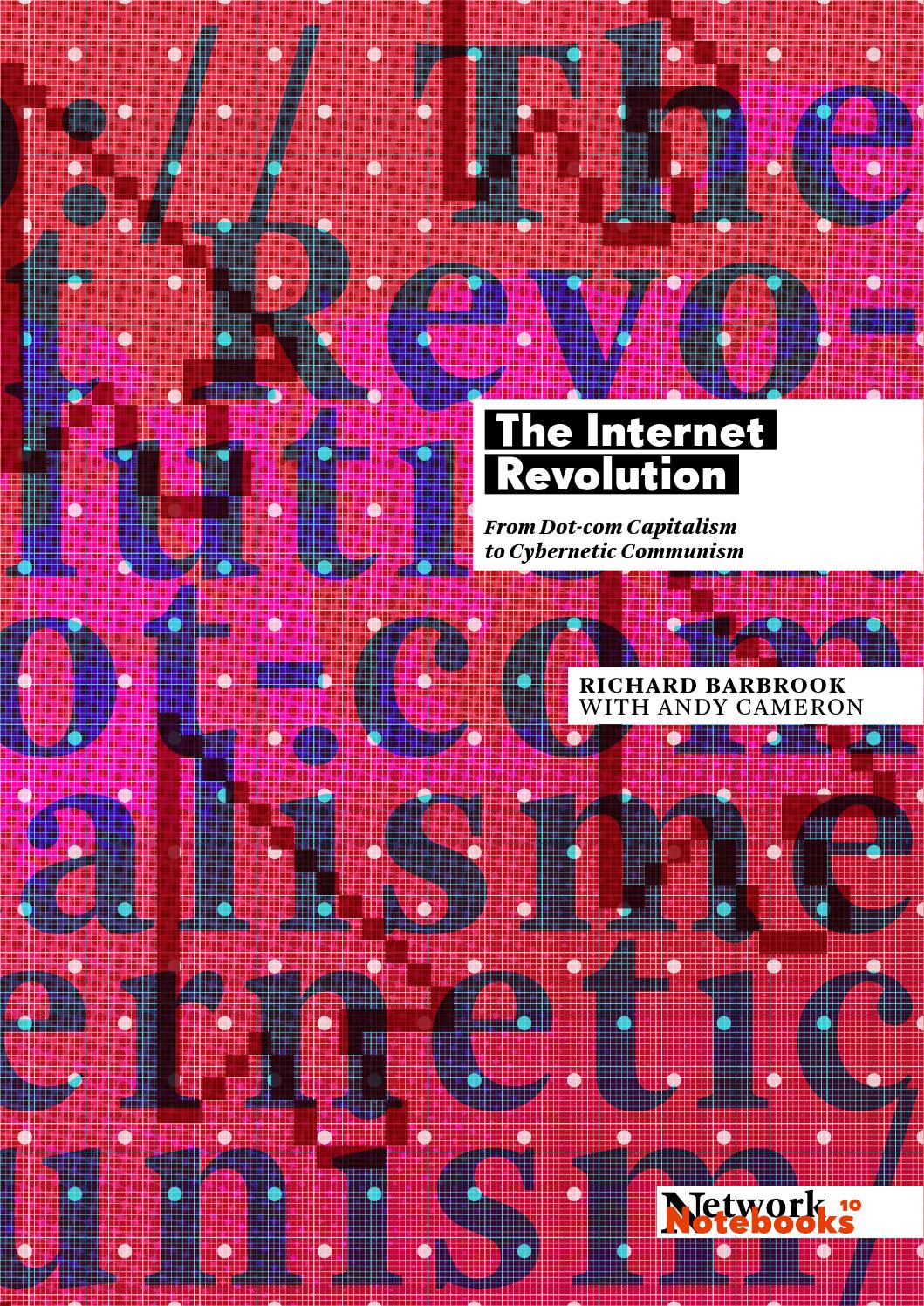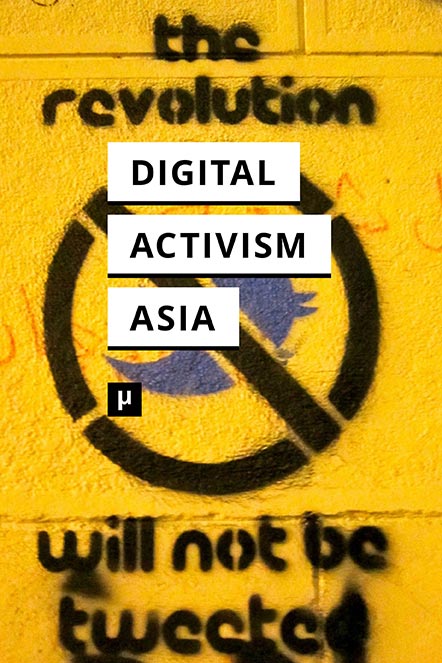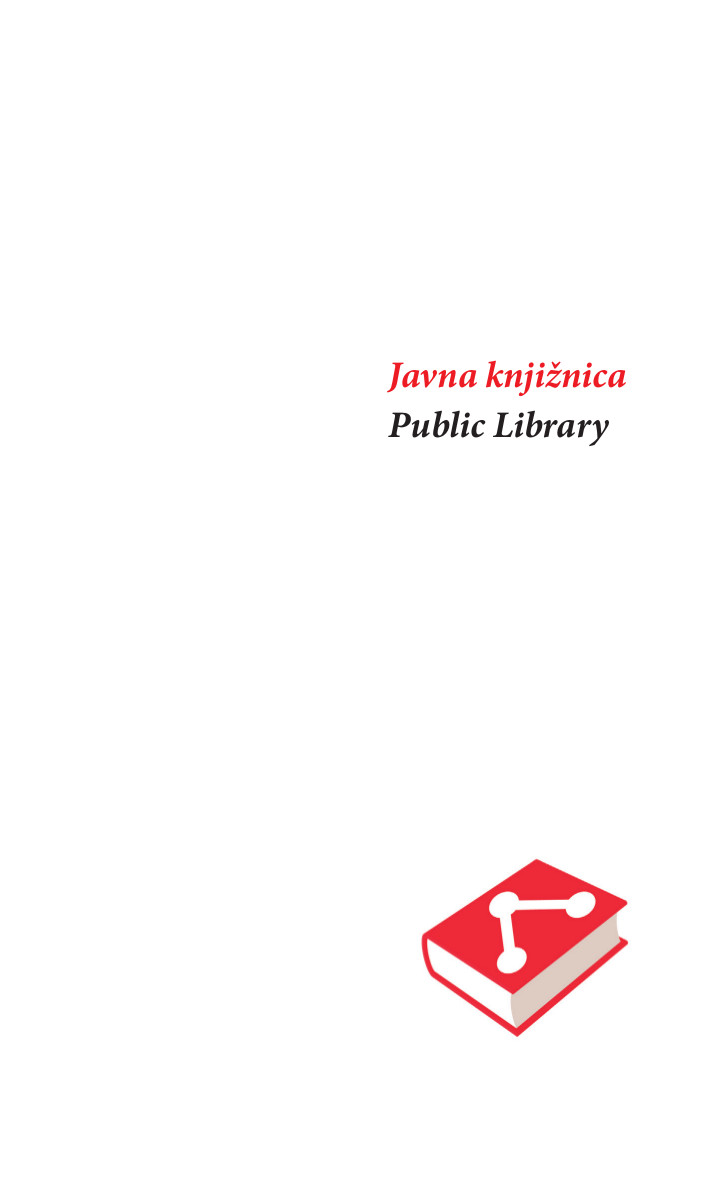Richard Barbrook with Andy Cameron: The Internet Revolution: From Dot-com Capitalism to Cybernetic Communism (2015)
Filed under book | Tags: · californian ideology, capitalism, communism, cybernetics, cyberspace, internet, libertarianism, neoliberalism, net criticism, silicon valley, technology, virtual reality

“Richard Barbrook and Andy Cameron’s The Californian Ideology, originally published in 1995 by Mute magazine and the nettime mailinglist, is the iconic text of the first wave of Net criticism. The internet might have fundamentally changed in the last two decades, but their demolition of the neoliberal orthodoxies of Silicon Valley remains shocking and provocative. They question the cult of the dot-com entrepreneur, challenging the theory of technological determinism and refuting the myths of American history. Denounced as the work of ‘looney lefties’ by Silicon Valley’s boosters when it first appeared, The Californian Ideology has since been vindicated by the corporate take-over of the Net and the exposure of the NSA’s mass surveillance programmes.
Published in 1999 at the peak of the dot-com bubble, Richard Barbrook’s Cyber-Communism offers an alternative vision of the shape of things to come, inspired by Marshall McLuhan’s paradoxical ‘thought probes’. With the Californian Ideology growing stronger, the Net was celebrated as the mechanical perfection of neoliberal economics. Barbrook shows how this futurist prophecy is borrowed from America’s defunct Cold War enemy: Stalinist Russia. Technological progress was the catalyst of social transformation. With copyright weakening, intellectual commodities were mutating into gifts. Invented in capitalist America, the Net in the late-1990s had become the first working model of communism in human history.
In an introduction written specially for this 20th anniversary edition, Richard Barbrook takes a fresh look at the hippie capitalists who shaped Silicon Valley and explains how their influence continues to this day. These thought probes are still relevant in understanding the contradictory impact of ubiquitous social media within the modern world. As McLuhan had insisted, theoretical provocation creates political understanding.”
Publisher Institute of Network Cultures, Amsterdam, Oct 2015
Network Notebooks series, 10
Creative Commons Attribution-NonCommercial-ShareAlike 4.0 International License
ISBN 9789492302014
51 pages
Replies to ‘The Californian Ideology’ published in Mute 4 (Spring 1996): Introduction, Louis Rossetto (Wired’s editor-in-chief), Franco (Bifo) Berardi, Celia Pearce.
PDF, PDF (4 MB)
EPUB, EPUB (3 MB)
Issuu
Nishant Shah, Puthiya Purayil Sneha, Sumandro Chattapadhyay (eds.): Digital Activism in Asia (2015)
Filed under book | Tags: · activism, asia, internet, internet activism, media activism, participation, politics, protest, social media, social movements, software

“The digital turn might as well be marked as an Asian turn. From flash-mobs in Taiwan to feminist mobilisations in India, from hybrid media strategies of Syrian activists to cultural protests in Thailand, we see the emergence of political acts that transform the citizen from being a beneficiary of change to becoming an agent of change. In co-shaping these changes, what the digital shall be used for, and what its consequences will be, are both up for speculation and negotiation.
Digital Activism in Asia marks a particular shift where these questions are no longer being refracted through the ICT4D logic, or the West’s attempts to save Asia from itself, but shaped by multiplicity, unevenness, and urgencies of digital sites and users in Asia.
This reader crowd-sources critical tools, concepts, analyses, and annotations, self-identified by a network of change makers in Asia as important in their own practices within their own contexts.”
Publisher meson press, Lüneburg, July 2015
Creative Commons BY-SA 4.0 License
ISBN 9783957960511
273 pages
PDF (9 MB, updated 2015-8-13)
Comments (2)Tomislav Medak, Marcell Mars, WHW (eds.): Public Library / Javna knjižnica (2015) [English/Croatian]
Filed under book | Tags: · book, internet, knowledge, library, metadata, web

A collection of four essays on the institution of the public library and the relevance of today’s online text collections. Published on the occasion of an exhibition and conference held in Zagreb, Croatia, in May and June 2015.
“The public library is:
* free access to books for every member of society;
* library catalog;
* librarian.
With books ready to be shared, meticulously cataloged, everyone is a librarian. When everyone is librarian, library is everywhere.”
Texts by McKenzie Wark, Tomislav Medak, Marcell Mars, Manar Zarroug, and Paul Otlet.
Edited by Tomislav Medak, Marcell Mars, and What, How & for Whom (WHW)
Publisher WHW & Multimedia Institute, Zagreb, May 2015
Creative Commons BY-SA 4.0 License
ISBN 9789535595137
144 pages
via Memory of the World

